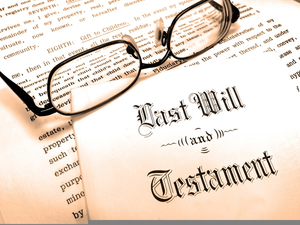North Carolina recognizes a cause of action for tortious inference with expected inheritance. This cause of action can be confused with tortious interference with prospective economic advantage, which occurs in the context of a contract or potential contract. Conversely, tortious interference with expected inheritance occurs in the context of a will or estate, rather than in the context of a contract or potential contract. Further, unlike a cause of action for undue influence, which permits recovery by the testator (the person executing the will), tortious interference with expected inheritance permits recovery by the individual expecting to benefit from the testator’s will. The Elements To prove tortious interference with…
-
-
DISINHERITED SPOUSES AND THE RIGHT OF ELECTIVE SHARE
Ric Ocasek, famed singer for The Cars, recently passed away leaving behind a will that purportedly removes his estranged wife, Paulina Porizkova, as a beneficiary of his estate. Ocasek and Porizkova were in the process of divorcing when Ocasek died; however, the divorce was not finalized, and the two were still legally married. Removing one’s spouse from an estate plan – often referred to as disinheriting a spouse – is common, particularly when spouses are separating and divorcing. States that have adopted the Uniform Probate Code, or similar statutes, create protection for a disinherited spouse in the form of the right of elective share. What is Elective Share? …
-
When Heirs Cry: Claiming Prince’s Paternity
The inheritance saga in the wake of Prince’s death continues. Since reportedly dying without a will, potential heirs are coming of the proverbial woodwork and claiming they are entitled to a piece of Prince’s fortune. According to Minnesota law, if there is no will, the deceased’s estate first goes to his spouse. If there is no living spouse, then the estate would go to the deceased’s children. If there are no living children, then the parents inherit the estate. Finally, if no living parents, the estate would pass to the deceased’s parents’ descendants (i.e., the siblings of the deceased). …


